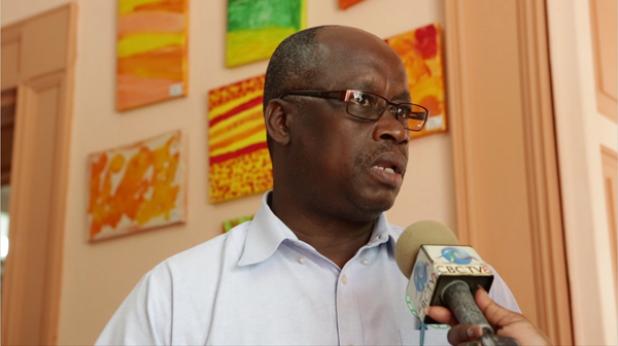
Chief Executive Officer of the Barbados Agricultural Society (BAS), James Paul.
Export possible
Mon, 08/08/2016 - 12:00am
Local farmers are not right now growing produce in quantities that can be exported, but it is being suggested that with the right framework and incentives in place, they probably could.
Chief Executive Officer of the Barbados Agricultural Society (BAS), James Paul, said that there is a lot of agricultural land across the country that remains either out of use or is being underutilised, that can be brought back into production. If this is done, he stated, the sector can first focus on meeting the domestic demand and then use the surplus to export. Eventually, he added, if all goes well they would be able to satisfy both markets adequately.
His comments came as he told The Barbados Advocate that while quantity is a determining factor in respect of the export of Barbadian produce, an even more important factor is the international standards that they would have to meet. Paul acknowledged that there are programmes in place aimed at addressing the standards dilemma, particularly access to funding, but argued that in many respects they were falling short.
“A lot of the things that are in place for accessing the funding to meet the standards are extremely onerous. By and large, the small enterprises have not been able to meet those demands. So there needs to be a mechanism put into the existing programmes that would allow for some hand holding,” he said.
He was making the point as he noted that there are some roots and tubers indigenous to the region that he believes that Barbados can look to export in the future. He said interest in and demand for such products is rising globally, and Barbados could be among the countries which seek to meet the demand. With that in mind, the agriculturalist explained if any of this is to be possible, large scale investment will need to be injected into the sector, and he is suggesting it is an area in which the Barbadian Diaspora can get
involved.
He noted that a large portion of the Barbadian Diaspora lives in the United Kingdom (UK), and with record low interest rates continuing to prevail in that country, the time may be ripe for Barbadians living in the UK to invest in local agricultural projects.
Just last Thursday Britain’s central bank cut interest rates from 0.5 to 0.25 per cent in an effort to boost the economy in the wake of the Brexit vote. These lower interest rates relate not only to loans but savings as well, and the BAS head strongly believes that if Barbadians living in the UK invest in the local agricultural sector, they will reap high rates of return.
(JRT)
